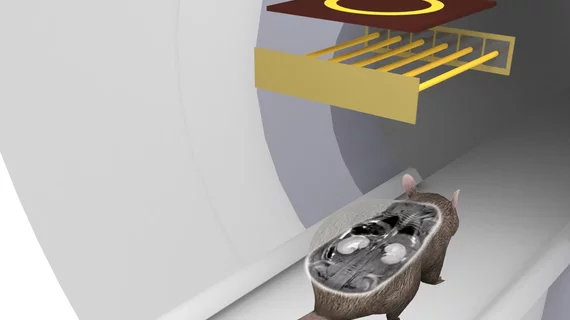Novel preclinical MRI coil produces images with 3 times the resolution
A team of Russian researchers has developed a novel MRI coil capable of producing images with three times the resolution of commercial varieties, according to a recent NMR in Biomedicine study.
The new technology is designed specifically for preclinical study use in mouse models. Scientists at ITMO University in Saint Petersburg also utilized cheaper materials and manufacturing methods, and claim the design may be adapted for multiple research projects, according to a prepared statement.
“[The] new design allows us to optimize how the coil works, increase its sensitivity and image quality,” said Anna Khurshkainen, with ITMO, in the release. “Besides, the cost of raw materials is low, and the manufacturing technology allows us to adapt the method for various projects."
Typically, preclinical drug studies are tested on animals, such as mice, and often involve whole-body MRI. However, producing a quality image of a whole mouse is difficult and usually requires combining many images from several small coils or using a large coil which distorts the image.
The small coil design combined with a higher alternating magnetic field intensity enabled the group to increase the sensitivity of the entire field of view and produce sharper images.
And after they experimented with various measurements between the object and coil, and compared those to the resulting signal-to-noise ratios, they located the ideal distance to produce quality images.
“It turned out that there is an optimal distance between the image and the coil, at which our coil provides the image quality three times higher than the standard one," said Mikhail Zubkov, a researcher at the Laboratory of Nanophotonics and Metamaterials at ITMO in the statement.

